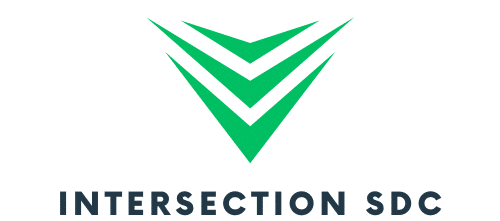In a world where sports performance is measured in milliseconds and millimeters, every edge matters. For athletes, particularly those in high-impact sports such as rugby, sleep is an essential part of preparation and recovery. However, the nature of professional sports often requires extensive travel, which can cause significant disruptions to sleep patterns and negatively impact performance.
This article will explore the importance of sleep for athletes and the effects of disrupted sleep schedules due to travel, with a particular focus on rugby players. Moreover, it will look into various strategies that can be adapted to mitigate these effects and ensure optimum recovery and performance.
Dans le meme genre : What Are the Challenges in Incorporating Virtual Races into Official Athletics Events?
The Importance of Sleep for Athletes
Sleep plays a crucial role in an athlete’s performance and recovery. It is not a passive state, but rather a time for the body and mind to repair, regenerate and consolidate memories.
Numerous studies have shown that sleep deprivation or poor sleep quality can lead to decreased reaction times, impaired decision-making capabilities, and increased susceptibility to injuries. On a more serious note, chronic sleep deprivation can have long-term effects on an athlete’s health and wellness, increasing the risk of cardiovascular diseases, obesity, and mental health disorders.
A lire également : What’s the Impact of Personalized Hydration on Cognitive Function in eSports Athletes?
For rugby players, who require high levels of physical strength, endurance, and cognitive agility, the effects of sleep deprivation could be catastrophic both on and off the pitch. Therefore, it’s essential that sleep interventions are part of their regular training regimes.
The Effects of Travel on Sleep
Long-haul travel, especially across multiple time zones, can wreak havoc on the body’s internal clock, leading to a condition known as jet lag. Symptoms of jet lag include fatigue, difficulty concentrating, gastrointestinal disturbances, and, of course, disrupted sleep patterns.
When rugby teams travel internationally for matches or training camps, the resulting jet lag can severely impact their performance and recovery. A study on the impact of jet lag on athletes revealed that it takes approximately one day for the body to adjust to each time zone crossed. This means that a team traveling from London to Sydney would require at least nine days to fully recover.
This duration poses a significant challenge, as teams often don’t have the luxury of such extended recovery periods. Therefore, effective sleep interventions become pivotal in ensuring that players adjust swiftly and perform at their peak.
Tailoring Recovery Sleep Strategies
The key to mitigating the effects of jet lag lies in adapting to the new time zone as quickly as possible. This involves resetting the body’s internal clock, or circadian rhythm, which controls sleep-wake cycles, among other physiological processes.
Here’s where tailored sleep interventions come into play. These strategies can be customized based on the travel duration, direction, and the individual’s sleep habits.
One effective strategy is light exposure. Light is the primary external cue that influences our circadian rhythms. By manipulating light exposure, athletes can adjust their biological clocks to align with the new time zone. This might involve exposure to bright, natural light in the morning to promote alertness, and reducing light exposure in the evening to encourage sleepiness.
Another important strategy is maintaining good sleep hygiene. This includes sticking to a regular sleep schedule, avoiding caffeine and alcohol, and creating a sleep-friendly environment.
The Role of Sleep Technology
The advent of sleep technology has made it significantly easier to monitor and improve sleep quality. Wearable devices can track sleep duration, quality, and disturbances, providing valuable data that can be used to tailor sleep interventions.
For example, sleep tracking devices may reveal that an athlete struggles with early morning awakenings. This information could guide interventions, such as adjusting their exposure to light in the early morning or tweaking their diet.
Moreover, these devices can provide real-time feedback, allowing adjustments to interventions as required. As such, they represent a powerful tool in the arsenal of recovery strategies for jet-lagged rugby teams.
Rugby teams have a lot to contend with as they strive for success, and the effects of travel on sleep must not be underestimated. By understanding the importance of sleep and the impact of jet lag on performance, implementing tailored sleep interventions, and leveraging sleep technology, teams can ensure they are well-rested, rejuvenated, and ready for action – no matter where in the world they are playing.
Adapting to Different Time Zones
Travel fatigue and jet lag are common issues for rugby teams that regularly participate in international matches. Adapting quickly to new time zones becomes crucial to maintain optimal athletic performance. Implementing a variety of strategies helps to reduce the effects of jet lag, improve sleep health, and enhance overall recovery.
Sleep extension is one of the strategies that can be used to help athletes adapt to new time zones. Before traveling, athletes should gradually adjust their sleep schedule to the time zone of their destination. This approach may include going to bed earlier or later than usual, depending on the direction of travel.
Additionally, nutritional interventions could be beneficial in resetting an athlete’s body clock. Consuming meals according to the destination’s time zone can help athletes adjust more quickly. Moreover, certain nutrients such as tryptophan, found in turkey and milk, and melatonin, found in cherries, can promote better sleep quality.
Lastly, short naps taken at strategic times can also help manage sleep deprivation and reduce travel fatigue. However, it is important to limit nap duration to avoid affecting nocturnal sleep.
Conclusion: Sleep Wellness for Optimal Performance
In conclusion, sleep plays an undeniably critical role in an athlete’s overall performance, recovery, and wellness. For rugby teams, maintaining optimal sleep health while combating issues such as jet lag and travel fatigue is a significant challenge that requires strategic planning and intervention.
By understanding the effects of disrupted sleep caused by different time zones, and incorporating tailored sleep strategies, teams can minimize the impact of travel on athletic performance. These strategies may include light exposure manipulation, maintaining good sleep hygiene, sleep extension, nutritional changes, and taking strategic naps.
Moreover, leveraging sleep technology can provide teams with valuable data about athletes’ sleep duration, quality, and disturbances. This data can guide the customization of sleep interventions, ensuring that athletes get the quality sleep necessary for peak performance.
While research is ongoing in this field, it is clear that prioritizing sleep wellness is a wise move for any team aiming for success. As they say, "You snooze, you win!" So, wherever they are in the world, rugby teams should ensure they get a good night’s sleep before taking to the pitch.






